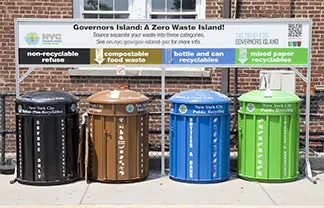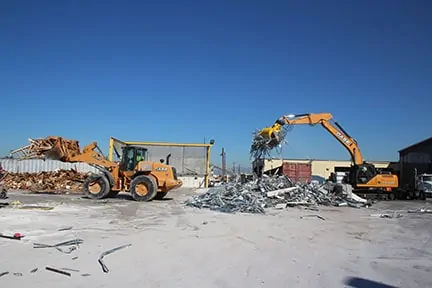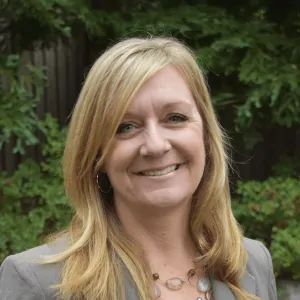

The Pennsylvania Department of Environmental Protection (DEP), Bureau of Waste Management, has awarded SCS Engineers (SCS) a contract to provide recycling and organics management technical assistance to local governments throughout the state. Brent Dieleman, SCS’s Project Manager, has years of experience administering these types of programs for the Solid Waste Association of North America.
Pennsylvania ratified “Act 101” in 1988 to manage waste and promote recycling across the Commonwealth. The DEP developed the Recycling Technical Assistance Training Program to help local governments comply with Act 101 by improving and expanding their collection and diversion programs. SCS will help administer and provide technical assistance to this Program. The comprehensive support provides for curbside and drop-off recycling programs, solid waste planning, public education, materials processing, equipment, technical training, environmental protection programs, and organics management.
Additionally, local governments can apply for technical assistance, up to $7,500 per applicant, to help expand and improve their recycling and organics management systems. SCS will work with applicants to assess their needs and refine the scope of their project. Once DEP approves a technical assistance project, SCS will then provide specialized, tailored training to each recipient.
SCS will help each grant recipient address the unique issues and challenges facing their program including, composting, collections, incentive-based programs such as pay-as-you-throw, and siting of new facilities. SCS anticipates providing technical assistance for up to 30 local governments annually.
DEP is tasking SCS with helping them find ways to further promote the Program across the Commonwealth and enable local governments to benefit from it. SCS anticipates presenting the initiative to local landfill owners and operators at a seminar in Harrisburg, Pennsylvania on June 9, 2017.
“In recent years Pennsylvanians have recycled nearly 17 million tons of waste, which removed almost 16 million tons of carbon dioxide emissions from the air. That is equivalent to saving the electricity used in 2.18 million American homes per year or taking 3.34 million passenger vehicles off the road for one year,” said Brent Dieleman. “We’re facilitating the DEP to help local governments efficiently expand their recycling programs.”
Increasingly, solid waste and recycling agencies are being asked by their political decision makers to improve efficiency, focus on customers, and reduce increased costs. Many agencies are managed with a combination of manual processes, desktop computer tools, limited vehicle and cart tracking and management tools, and custom databases. While effective, these methodologies often entail more effort, labor, and costs.
Smart technologies are expected to grow substantially over the next decade as agencies attempt to minimize their overall costs in solid waste collection and recycling and increase overall efficiency. As discussed briefly in this article, smart technologies have advantages and disadvantages. As agencies investigate technology to help support their service, ensure continued quality service delivery and meet demanding business requirements, it is important to conduct feasibility assessments to evaluate the economic costs to implement and update the use of new technologies in a sustainable manner.
Marc J. Rogoff and Laurel Urena of SCS Engineers.
Eight reasons to help confront the myth include economic advice from the NWRA and SWANA.
In the EPA’s Region 9 U.S.-Mexico Border Program Progress Report, April-September 2016
The Campo Band of Mission Indians (CBMI) staff members are working with the EPA and SCS Engineers to address their waste management needs. SCS Engineers, an environmental engineering firm, was contracted by the Border Environment Cooperation Commission to work with CBMI in response to their request for technical assistance.
SCS Engineers was contracted to prepare a waste characterization study to support the development of a zero waste plan. The study provides critical information for designing and developing the future programs, policies, and facilities to effectively achieve a zero waste program.
Based on the findings, CBMI will assess their infrastructure needs, including consideration of a transfer station. SCS Engineers conducted field sampling to assess the Golden Acorn Casino in September 2016, the same month that Jeff Scott, EPA’s Land Divison Director visited Campo.
The Border 2020 Program is the latest environmental program implemented under the 1983 La Paz Agreement. It builds on the Border 2012 Environmental Program, emphasizing regional, bottom-up approaches for decision making, priority setting, and project implementation to address the environmental and public health problems in the border region. As in Border 2012, the new Program encourages meaningful participation from communities and local stakeholders.

Read the full article by Marc Rogoff, SCS Engineers.
“This program directly supports the county’s Roadmap to a Sustainable Waste Management Future by helping businesses to implement recycling programs,” says Leonard. “And not only recycling but waste reduction, as well, all of which, of course, contribute to reducing greenhouse gas emissions, resource management and sustainable materials management.”
Read the article about L.A. County’s Plan for Sustainable Waste Management

Construction and Demolition Recycling Inc. is a California state certified C&D recycling facility which handles debris from the renovation, construction, and demolition of commercial interior spaces. CDR is the only facility in California that accepts only commercial interior debris, and the only facility in the country that can show a better than 80% diversion rate of these materials traditionally buried in landfills.
CDR’s staff also salvages usable items such as furniture, desks, chairs, file cabinets, and more, for reuse, donating more than 50 tons of these materials every month to not-for-profit agencies and other organizations. All of this allows CDR to divert over 80% of all inbound debris from landfills, a diversion rate that has been third party-verified by the Recycling Certification Institute.
The CDR facility in South Gate, California is a fully permitted C&D/inert debris processing and transfer facility. The facility is owned and operated by Interior Removal Specialist, Inc. (IRS), a demolition company that conducts demolition activities primarily of the interior of offices and other commercial buildings. Construction and Demolition Recycling Incorporated’s goal is to lead by example; showing that the diversion of tenant improvement demolition debris can be accomplished as efficiently and cost effectively as the debris from more traditionally recognized demolition debris. CDR has become the first and so far only recycling facility in Southern California that has earned Third Party Diversion Certification from The Recycling Certification Institute, making CDR the only facility in Southern California that is eligible to provide the US Green Building Council LEED Pilot Point for facilities with 3rd party verification.
Read the full article to learn some of the innovative strategies of this successful recycling company in “Construction and Demolition Debris Recycling Program; How CDR was Conceived and How CDR Remains Sustainable.”
Solid Waste Management, Sustainability, and Recycling Programs
By following the simple procedures governing selective routing in the commercial space, it is possible to turn a high disposal garbage collection system into a high diversion recycling system, without incurring additional costs or losing collection revenue. Read more…
Tracie Onstad Bills of SCS Engineers and Richard Gertman of For Sustainability Too explain the steps for commercial-stream routing and management of commercial recyclables with remarkable results in their Resource Recycling article published in June 2016.
Questions? Ask Tracie, she writes a blog series about recycling.
Tracie Onstad Bills, Northern California Director, Sustainable Materials Management at SCS Engineers
Thank you for the responses and questions about my blog Minimizing Contamination in Recycling. It seems appropriate to provide answers to the most frequently asked questions and send more advice. Any program should be tailored to your current collection system; what works and what doesn’t work for your locality; the demographics of your community; and how your community views recycling.
In light of those considerations, here are some recommendations for ways to minimize contamination in recyclables:
Learn more about recycling programs by reading Success In Selective Routing – Resource Recycling or the SCS project and case studies below:
As always, feel free to send me your questions and comments. Contact Tracie here.
SCS Engineers’ Tracie Onstad Bills and Leslie Lukacs were both selected to receive the California Resource Recovery Association’s (CRRA) prestigious Service Award this year. According to CRRA Executive Director, John H. Dane, the award recognizes “exceptional individual service to the organization and a contribution of time or resources beyond expectations.” That sounds like an SCSer alright.

Tracie Bills is SCS’s Sustainable Materials Management Director and is based in our Pleasanton, CA, location. She has been on the CRRA board for 10 years and has served in several leadership positions within the organization, including as its President for three years. Her expertise revolves around commercial recycling technical assistance, environmental purchasing, large venue and event zero waste programs, research and sustainability planning, garbage hauler franchise compliance and review, construction and demolition program / ordinance analysis and writing, climate inventory compilation, research and feasibility studies to help clients with comprehensive waste prevention and zero waste programs.
Leslie Lukacs serves as a Sustainable Materials Management Specialist in our Santa Rosa, CA, office. She has been on the CRRA board for 12 years and also served in a variety of leadership positions. She also founded CRRA’s Green Initiatives for Venues and Events technical council and was an instructor for CRRA’s Resource Management Certification Program for 5 years. Leslie specializes in the design and implementation of sustainable materials management and zero waste programs and is a pioneer in the greening of venues and events throughout the nation. Her extensive expertise in the logistics of zero waste, recycling, and composting programs, such as outreach management, business assistance, master planning, waste audits and characterization studies, extended producer responsibility ordinance preparation and implementation, compliance, grant writing, and administration are all key to successful long-term programs.
Both women were selected by the CRRA Board of Directors to be the 2016 recipients of the Service Award. The awards will be presented at the organization’s Annual Conference Awards Ceremony on August 9 in Sacramento.
CRRA is California’s statewide recycling association. It is the oldest and one of the largest non-profit recycling organizations in the U.S. CRRA is dedicated to achieving environmental sustainability in and beyond the state through Zero Waste strategies including product stewardship, waste prevention, reuse, recycling and composting. The organization provides its members with resources to advance local, regional and statewide waste reduction efforts which result in critical environmental and climate protection outcomes. Members represent all aspects of California’s reduce-reuse-recycle-compost economy and work for cities, counties, municipal districts, and businesses as well as hauling companies, material processors, non-profit organizations, state agencies, and allied professionals.